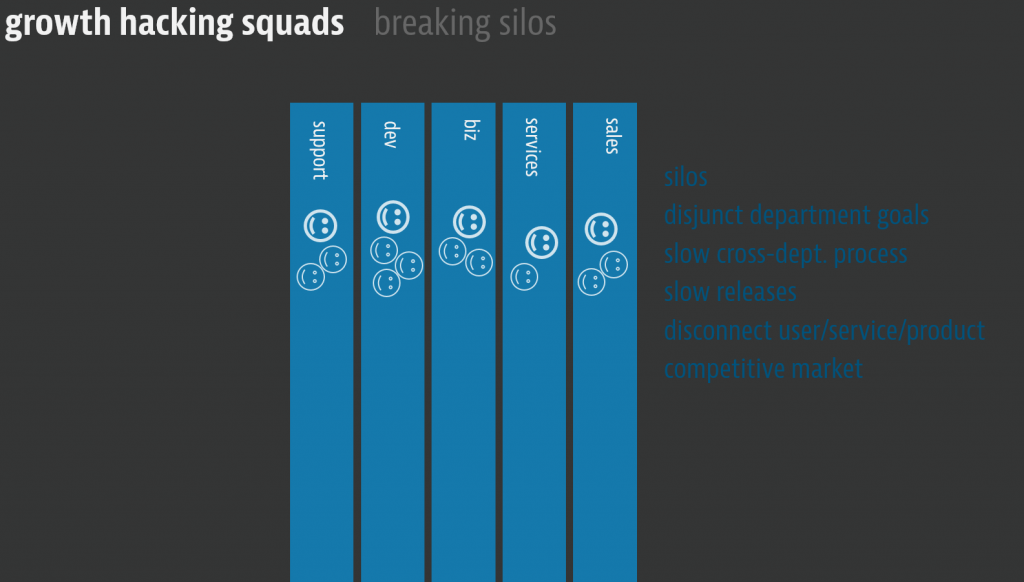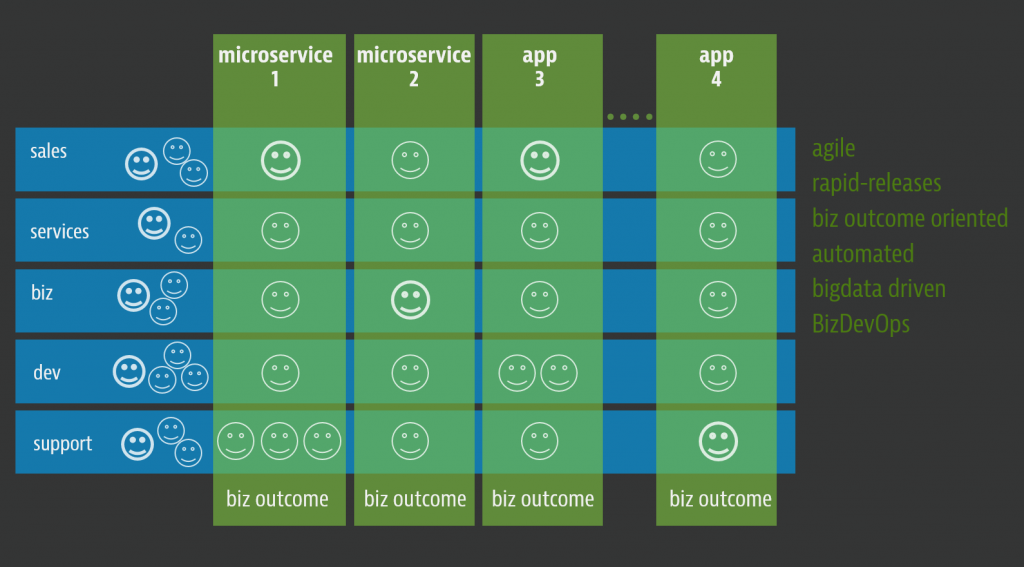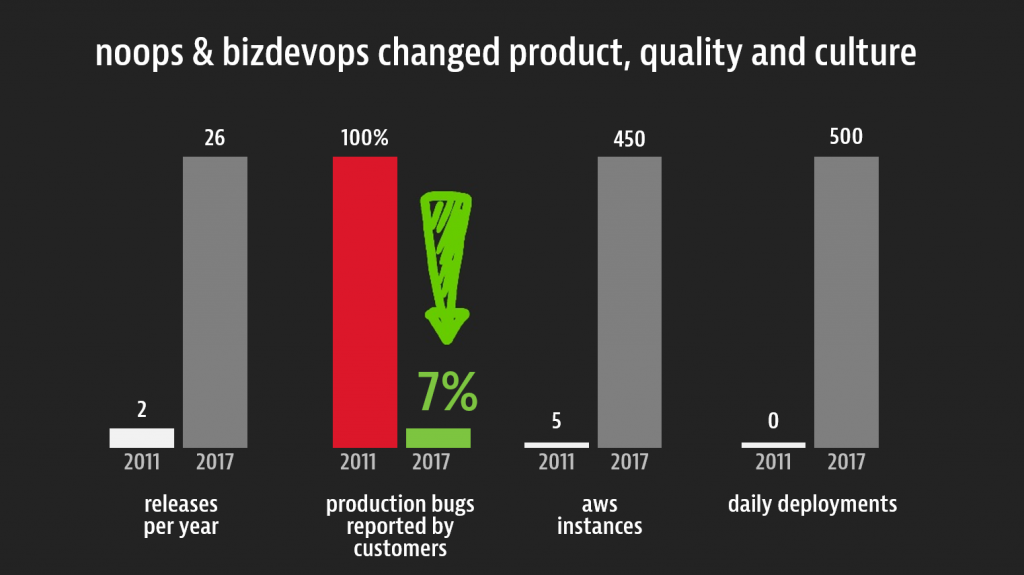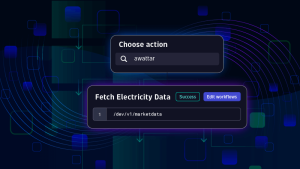There was a lot to talk about and announce at Perform this year, but there were few things I was more excited to talk about on Mainstage last week than how Dynatrace is enabling our customers on their journey to achieve self-driving IT.
There are five main ingredients for making self-driving IT work:
- AI-driven answers and orchestration
- Openness and automation
- Cloud technology
- Breaking down organizations’ silos
- Shifting the company culture in a BizDevOps direction
There’s a lot to unpack there, but right now I want to focus on those last two ingredients: breaking down the silos and creating a BizDevOps culture.
Breaking down silos
Digital transformation and becoming a more agile company can’t happen unless you break down the silos that build up in every company. A lot of people might think this is a technology problem, but technology is really just about 20 percent of the equation. The truth is, 80 percent of the challenge to transform into the new digital world needs to happen through changing organizations’ structure and culture.
Here’s how that might look at a typical company:

Everyone’s off in their own worlds, with their own silo-oriented KPIs, almost entirely forgetting the business and customer. This creates a litany of problems: misaligned goals across teams, slow collaborative processes, slow releases, disconnects between users, services and products, and so on. It’s a totally inefficient way to run a company.
But, by defining agile teams with a skill mix from former silos – let’s call those scrum like teams e.g. growth hacking squads – with dedicated ownership of business outcome for their microservice or application, you break through those silos and create stronger business outcomes overall. Think of it a little like this:

So, instead of the support person being praised on the number of closed tickets – which has little direct correlation to business success and customer happiness – the cross-talented team focuses jointly on business outcome like customer retention and revenue growth. Those shared high-level metrics drive the individuals in the team to treat customers better, create more value and, thus, drive business.
Creating a culture of BizDevOps
That brings me to the last ingredient on the self-driving IT recipe: a BizDevOps culture, fueled by real-time feedback. Real-time feedback can change your work culture for the better.
What does that mean in terms of tangible outcomes?
- Having safe production access for developers
- Enabling a you-build-it-you-run-it culture (because pride about seeing customers using their built features, and receiving real-time feedback on the use of those features, outpaces the burden of additional production responsibility)
- Democratizing information to better foster collaboration
- Automating everything, to bolster speed and agility
- Leveraging our data-driven Dynatrace AI for stronger results
This approach had a profound effect on us here at Dynatrace. Over the last six years, we have drastically ramped , p our release cycles, AWS instances and daily deployments. But, because we’ve placed such an emphasis on NoOps and BizDevOps, over that same period, 93 percent of our production bugs are now found by the developers themselves. This brings higher awareness of production quality to Developers, and since its always a pain to have production bugs, they do care much more about proactive automated tests and better code quality overall. So, this culture change is a huge win for all.
Digital experience monitoring is a key component to producing real-time feedback for BizDevOps teams, ultimately enabling the culture shift. That runs the gamut of:

- Real-user monitoring
- Synthetic monitoring
- API monitoring
- Session Replay
- Complaint resolution
- User experience analytics
- Behavioral analytics
- Funnel analysis
- Compliance
- Applications like Fraud and CRM systems
Looking at the big picture
Like I said in the beginning, these are just two ingredients – two pieces of a much bigger puzzle. But, it’s more evident than ever before, that for enterprises to reach that agile, self-driving IT space, they need to make serious inroads toward breaking down the digital silos that have built up around their teams and data, and push a company culture shift in a BizDevOps direction.
To be sure, that’s not something that’ll happen overnight. But, it’s an investment that is more than worth the payoff, yielding improvements in productivity, efficiency, agility, faster release cycles, more proactive customer responsiveness and, ultimately, keeping you one step ahead of your competitors.



Looking for answers?
Start a new discussion or ask for help in our Q&A forum.
Go to forum